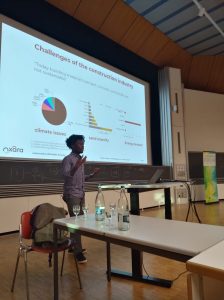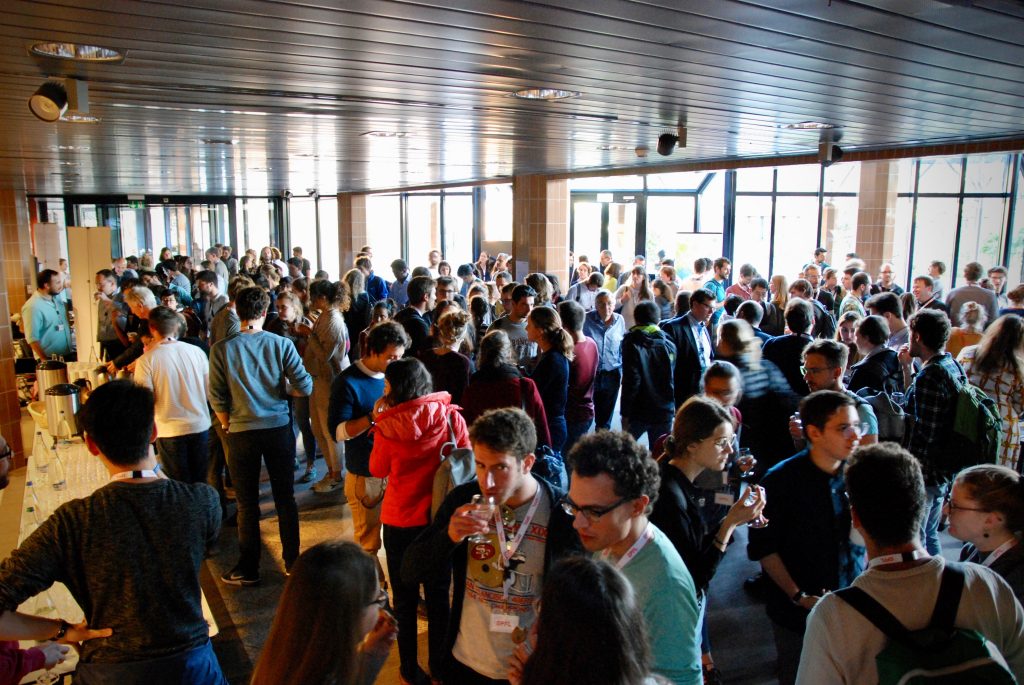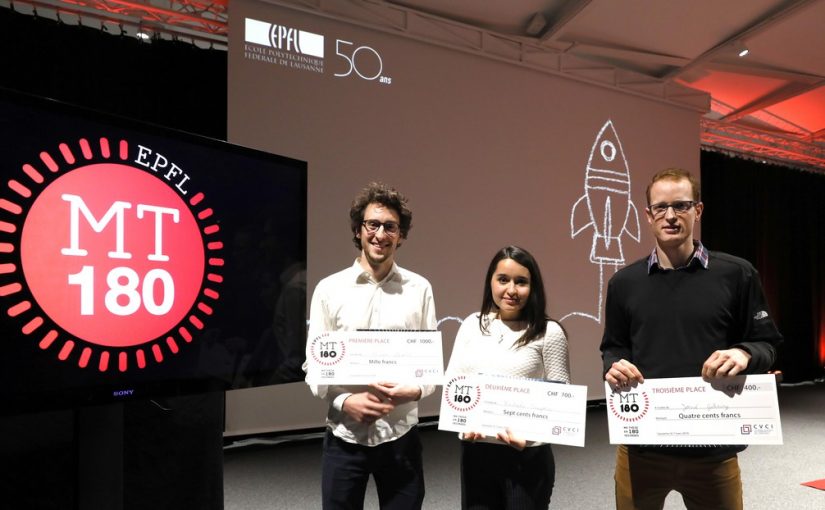Innovator of the Month Interview by Claudia Bigoni and Gian Franco Piredda
In February, Bern-based company RetinAI was selected by Bilan as one of the top 50 Swiss start-ups in which to invest. Here Carlos Ciller, CEO and co-founder, describes his start-up journey from academic research to commersialisation.
Based in Bern, RetinAI Medical sits in the intersection between medical imaging, artificial intelligence (AI) and early screening of diseases. Currently, the focus is AI in ophthalmology, where 1 out of 5 people will suffer from sight loss by 2020. The R&D team is also interested in age-related eye diseases – the leading cause of blindness for patients over 60 years old. One of the goals of RetinAI is to protect patients by developing healthcare solutions which combine computer vision and machine learning to detect early signs of malignant eye conditions.
Carlos Ciller, CEO and co-founder, carried out his PhD in machine learning and biomedical engineering in ophthalmology. This was a part of a collaboration between Swiss institutions UNIL, CHUV, EPFL and the University of Bern. During his PhD, he had the opportunity to visit the Department of Computing at Imperial College London with an SNCF Doc. Mobility grant. In London, he joined the local Innovation Forum (IF) branch as President and continued his Innovation Forum experience in Lausanne once he returned. He co-founded RetinAI together with Sandro De Zanet and Stefanos Apostolopoulos.
IFL: Hi Carlos! How did you develop the idea of using machine learning to study eye diseases? Will you be able to use your software for other organs?
Carlos: Studying eye diseases with machine learning was the topic of my PhD, ‘before it was cool’ and it was also the case for the other co-founders. Today, the application we are looking into is using this knowledge to facilitate early screening and analysis of eye diseases, bringing it to pharmacies, opticians or to general practitioners. A patient would be able to undergo an eye scan with special hardware with RetinAI software, which would immediately tell them if they are okay or not. In the latter case, you are then referred to an ophthalmologist who will suggest the correct treatment. This step is very important because all the sight loss cannot be recovered, so
the sooner you detect and treat the disease, the better it is for the patient and for healthcare systems in general.
Moreover, we are using the same concept to expand to dermatology, audiology and so forth. For all these applications, our goal is to integrate our technology into the next generation of medical devices, democratising access and breaking the technological barriers that separate clinicians and patients.
IFL: Are you already selling your product and if so, to whom?
Carlos: We are currently selling a Minimum Viable Product to different customers while iterating the final version. Instead of having a blind development, customers regularly give us feedback. Right now, our customers are hospitals, pharmaceutical companies, general practitioners and medical device manufacturers. Eventually, in the case of early screening, the customers will be also “you”.
IFL: How helpful is it for a start-up to be linked to a university?
Carlos: Initially, the University of Bern and the ARTORG Center from the University of Bern provided us with support to develop our start-up. However, IP-wise we are not connected to them. For other cases, I believe that in the medtech or biotech field, it is worthwhile being linked to a university to reduce the risk. This does not always hold for a software company, where the more independent you are, the easier it is to operate, raise funds and in general, move forward.
IFL: Did your active experience at the Innovation Forum play a role in your decision to found a start-up, or was it something you have always wanted to do?
Carlos: Actually, it has been a very long journey before reaching the point of funding a start-up. I always worked in part-time jobs while studying at university. During that time, I worked in multiple positions and I learned I had difficulties engaging in projects I did not fully believe in or which I did not consider had an impact in society. I have very strong opinions and I’ve always wanted to create value in my own way – we only have one life! For this reason, I tried to shape all my efforts and my PhD towards the creation of value in the form of start-up.
Nevertheless, being part of the Innovation Forum helped a lot with our intermediate challenges such as finding sponsors, convincing people about our ideas and bringing them on board. The Innovation Forum was the realisation of a dream, a combination of everything I was aiming towards: transforming innovation, re-shaping something that lies on a lab bench into a product and ultimately reducing the gap between pure science and a product or application. In this way, the Innovation Forum was eye opening because I could explore different fields in a canalised manner. Finally, being part of a community of researchers and entrepreneurs and having the opportunity to rely on an exceptional team helped a lot. I was also lucky because I met my future co-founders at the beginning of my PhD! I feel it’s really important to be good friends with your co-founders.
IFL: You have recently won the 3rd phase of Venture Kick worth 130’000 CHF. What is next for RetinAI?
Carlos: We are closing our next funding round of 1,1 million CHF in 2-3 months. We currently have 8 team members and by the end of the year we will be a team of 12. It is very exciting that so many people will be working on our project!
In terms of research, we are going through all the regulatory procedures to commercialise our product. Also, as mentioned, we will use our software not only for early screening and monitoring in ophthalmology, but also dermatology and audiology: basically, anything that could be tested in a pharmacy or monitored with a smartphone device. We believe digital healthcare is moving towards bringing healthcare to the hands of the patients, and this is also RetinAI’s direction. Finally, we will expand to other markets such as emerging countries to meet practitioners’ needs and different expectations around the world.
IFL: Finally a more philosophical question. Machine learning algorithms are now widely used in various fields including medicine. What are your thoughts about the interaction between computers and doctors in decision making? How do you think it will evolve?
Carlos: Machine learning is not going to substitute clinicians by any means, but it can accelerate and automate some tedious and repetitive tasks. To give a very simple example: imagine you have an eye scan and you are looking for a specific biomarker. To find it, the physician should scroll over all different slices of a 3D volume. If instead we can present this data in a more comprehensive manner, we could then improve the decision-making process. The objective of AI is to add a second, non-human and objective opinion to the doctor’s one to standardise this evaluation and to make it faster, so that physicians can use their precious time differently. I believe that AI and technologies alone are not enough; they will not replace doctors and there is no reason for this. However,
machine learning can empower the clinician’s decision.
We are still very far away from getting AI completely into clinics because many regulations and procedures are required to guarantee that the algorithms work. This is something that cannot be avoided and that shouldn’t be avoided. Nevertheless, I believe that using AI will soon become a real support to contributing to the well-being of a patient.
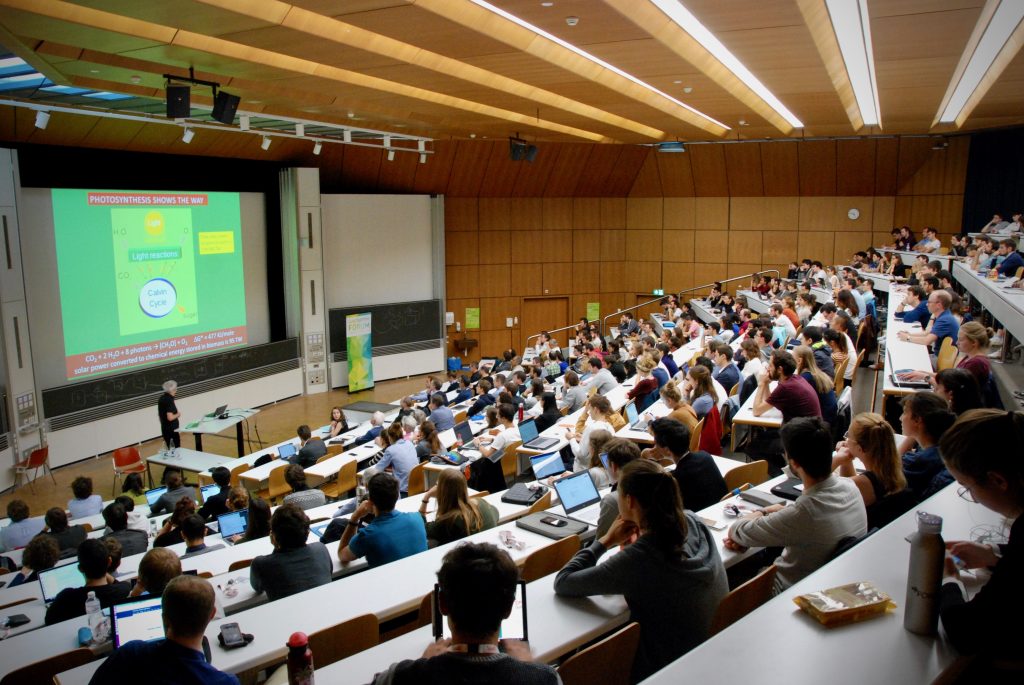
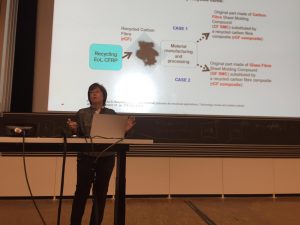 Professor Veronique Michaud, spoke about inherent difficulty of creating materials science-based startups, and on its current democratization. She presented the recent spin-offs that came out of her laboratory. Afterwards, Amael Cohades, CEO at CompPair, presented their innovative healable material. Mild heating of their lightweight composite material heals microcracks, which greatly increases its lifetime and recyclability.
Professor Veronique Michaud, spoke about inherent difficulty of creating materials science-based startups, and on its current democratization. She presented the recent spin-offs that came out of her laboratory. Afterwards, Amael Cohades, CEO at CompPair, presented their innovative healable material. Mild heating of their lightweight composite material heals microcracks, which greatly increases its lifetime and recyclability.
